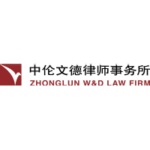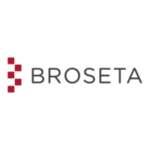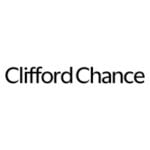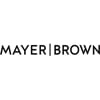-
How is the writing of insurance contracts regulated in your jurisdiction?
Mexican insurance contracts are governed by the Insurance Contract Law (“LCS”) published in the Official Gazette of the Federation (Diario Oficial de la Federación) (“DOF”) on 31 August 1935. The LCS applies to all insurance contracts, except for maritime insurance governed by the Navigation and Maritime Commerce Law published in the DOF on 1 June 2006.
The insurance contract is formed by the consent of the parties. Pursuant to Article 21 of the LCS, the insurance contract comes into effect when the insured receives a confirmation that the insurance company accepted his request for insurance coverage, regardless of whether any written evidence, such as an insurance policy or certificate, is issued. The effectiveness of an insurance contract cannot be subject to the condition that the respective insurance policy or any other document evidencing its acceptance is issued nor to the condition that the respective premium is paid.
-
Are types of insurers regulated differently (i.e. life companies, reinsurers?)
Insurance companies are regulated by the Insurance and Surety Companies Law (“LISF”). Reinsurance companies are insurance companies whose operations are limited to take or cede risks in reinsurance. Article 25 of the LISF classifies the following insurance operations and lines of business, each of which is subject to specific regulation:
- Life operations. Insurance contracts that cover risks affecting the insured’s existence.
- Accidents and health operations. Consist of:
- Personal accidents. Insurance contracts that cover injuries or disabilities affecting the insured’s personal integrity or health as a consequence of an external, violent, sudden, and accidental event;
- Medical expenses. Insurance contracts that cover medical, hospital and other expenses considered necessary for the recovery of the insured’s health, in the event of an accident or disease affecting the insured; and
- Health. Insurance contracts which main purpose is to provide services to prevent and restore the insured’s health.
- Property and casualty operations. Includes the following lines of business:
- Civil liability and professional risks. Insurance contracts that cover indemnity payments that an insured must pay in favour of third parties, as a consequence of losses caused by specific situations;
- Maritime and transportation. Insurance contracts that cover indemnity payments for damages and losses suffered on cargo, vessels, and other maritime assets;
- Fire. Insurance contracts that cover damages and losses caused by fire, explosion, fulmination or related accidents;
- Agriculture and animal. Insurance contracts that cover damages and losses suffered by the insured due to the partial or total loss of expected profits from land or by death, loss or damages of animals;
- Automobiles. Insurance contracts that cover damages and losses caused as a consequence of the use of automobiles;
- Credit insurance. Insurance contracts that cover the insured’s losses suffered by total or partial insolvency of commercial loan debtors;
- Surety insurance. Insurance contracts that cover damages caused as a consequence of the breach of obligations under an agreement entered into with the insured/beneficiary. This insurance does not include coverage of financial obligations of any type;
- Mortgage insurance. Insurance contracts that cover damages caused by breach of a mortgage loan debtor;
- Financial guaranty insurance. Insurance contracts that cover damages caused by breach of issuers of securities;
- Earthquake and other catastrophic risks. Insurance contracts that cover damages and losses caused to individuals or property as a consequence of a non-predictable and severe event that upon its occurrence aggregate claims for the insurance company; and
- Miscellaneous. Insurance contracts that cover damages and losses suffered by individuals or in property, caused by any other risk not contemplated in other lines of business.
-
Are insurance brokers and other types of market intermediary subject to regulation?
As a general rule, intermediation in insurance contracts is reserved exclusively to insurance brokers as set forth in Article 91 of the LISF and are subject to specific regulation.
An insurance broker requires prior authorisation of the National Insurance and Bonding Commission (“CNSF”) to intermediate. For purpose thereof, an application must be filed with the CNSF.
The CNSF may grant an authorisation to intermediate to either individuals with an employment relationship with the insurance company or individuals that are independent from the insurance company and act through an agency agreement, or to legal entities (insurance brokers), which must be incorporated as limited liability stock companies pursuant to the Regulation of Insurance and Surety Brokers. Insurance brokers shall perform the intermediation activities solely through individuals certified by the CNSF to intermediate insurance contracts. The authorisation granted by the CNSF to individuals to intermediation insurance is valid for three years and may be renewed. Insurance brokers incorporated as entities may be authorised to act as such for an indefinite period of time.
As an exception, standard-form insurance contracts may be promoted and distributed by legal entities, without the intervention of an insurance broker or agent, provided that the insurance company and the legal entity enters into a services agreement previously registered with the CNSF, and that the employees, representatives or officers of the legal entities involved in the promotion of insurance products receive the training and/or certifications from the CNSF required under Articles 102 and 103 of the LISF.
Reinsurance intermediaries are the only entities authorised to provide reinsurance intermediation services as set forth in article 106 of the LISF. To incorporate and operate a reinsurance intermediary, the prior authorisation of the CNSF is required and for purposes thereof, an application must be filed with the CNSF. The application must comply with the requirements set forth in Chapter 35 of the Sole Insurance and Surety Regulation (the “Circular”). The reinsurance intermediary must be incorporated as a limited liability stock company and have its corporate domicile in Mexico.
Under Mexican law, insurance claims adjusters require prior authorisation of the CNSF to perform activities related to the adjustment of insurance claims. The requirements for such authorisation are those set forth in article 111 of the LISF.
The CNSF is currently in the process of review of the legal framework applicable to insurance brokers and reinsurance intermediaries. The project of the new regulation has not been made public, and there is no formal timeline to issue the new legal framework.
-
Is authorisation or a licence required and if so how long does it take on average to obtain such permission? What are the key criteria for authorisation?
Pursuant to the LISF, to incorporate and operate an insurance company in Mexico, an application shall be filed with the CNSF. The application must comply with the requirements set out in Article 41 of the LISF and Chapter 2.1 of the Circular.
The CNSF has discretional authority to grant the authorization or to deny it. In its review, the CNSF would focus on the viability of the business plan, the financial projections, and solvency capital of the insurance company. In its review, the CNSF will assess whether the applicants understand the risks the insurance company will be undertaking and confirm that the insurance company will have sufficient capital to conduct its business in Mexico in the terms envisioned in its application.
As a general rule, the process to obtain the license to incorporate a new insurance company takes between nine and twelve months from the date of the filing of a complete application; and an additional four months to initiate operations after the respective incorporation.
Under the LISF, both Mexican reinsurance companies and foreign reinsurance companies may take risks from Mexican insurance companies in reinsurance. In the case of foreign reinsurance companies, these must be registered with the General Foreign Reinsurance Registry (“RGRE”) to take reinsurance and rebonding in the Country. In order to register with the RGRE, an application must be submitted with the CNSF. The CNSF may grant or deny such registration on a discretionary basis. The application must contain, among others, the rating granted by an authorized rating agency that complies with the minimum ratings requirements provided by the Circular.
-
Are there restrictions or controls over who owns or controls insurers (including restrictions on foreign ownership)?
There are currently no restrictions to foreign investment in insurance companies. In all cases, the CNSF must approve ownership and control of insurance companies incorporated in Mexico. The respective application must include, among others, the following information:
- Nationality;
- Amount of shares they will acquire and source of the assets to acquire such shares;
- Economic reports or financial statements for the last three fiscal years;
- Evidence of good credit reputation and financial capability; and
- Evidence of origin of funds.
The CNSF must approve any direct or indirect purchase of more than 5% of the shares of an insurance company. The respective application must include, among others, the information set forth above.
For direct or indirect purchases of 20% or more of the shares of an insurance company, the application should include, inter alia, the information set forth above and in addition, information on the candidates to be appointed as directors, officers, and managers of the insurance company.
As a general rule, participation of foreign governments in the capital stock of Mexican insurance companies is not permitted.
-
Is it possible to insure or reinsure risks in your jurisdiction without a licence or authorisation? (i.e. on a non-admitted basis)?
As a general rule, Article 20 of the LISF provides that only those entities duly licensed by the Mexican federal government through the CNSF to operate as insurance or reinsurance companies, may undertake active insurance operations on risks located within Mexican territory.
If a non-licensed reinsurance or insurance company operates in Mexico on a non-admitted basis and carries out active insurance operations in Mexico, it shall be deemed to be breaching Mexican law and the transaction shall be null and void. Furthermore, such conduct would constitute criminal liability on the part of (i) the non-admitted foreign insurer; (ii) the insurance intermediaries (broker or agent); and (iii) the officers, managers, directors, representatives, and agents of the entities referred to in (i) and (ii).
As an exception to the general rule, non-licensed insurance companies may offer or provide coverage in Mexico in those cases where the risk covered under the insurance policy may not occur in Mexico or if there is no Mexican insurance company that offers the corresponding insurance product. These exceptions require and are subject to the prior authorization of the CNSF.
Foreign reinsurance companies may take risk from Mexican insurers; provided that they are duly registered with the RGRE as explained in 4 above.
-
Is a branch of an overseas insurer, insurance broker and/or other types of market intermediary in your jurisdiction subject to a similar regulatory framework as a locally incorporated entity?
As a general rule, foreign insurers, insurance brokers, and other type of insurance or reinsurance intermediaries must operate in Mexico as a locally incorporated entity.
Foreign reinsurance companies registered with the RGRE may establish a representative office in Mexico. In order to establish a representative office in Mexico, the foreign reinsurance company must be registered with the RGRE and submit an application with the CNSF. The CNSF may grant or deny the authorization to establish a representative office in Mexico on a discretionary basis. The application must contain, among others, a business plan for the representative office, the name of the representative in Mexico of the foreign reinsurance company, the address where the representative office will be located, and such other requirements set forth in the Circular.
-
Are there any restrictions/substance limitations on branches established by overseas insurers?
Pursuant to Article 20 of the LISF, only Mexican entities duly licensed by the CNSF may operate insurance in Mexico. Therefore, in principle, foreign insurers may not operate insurance in Mexico through branches.
-
What penalty is available for those who operate in your jurisdiction without appropriate permission?
The CNSF has authority to suspend the operations or intervene companies or establishments that carry out insurance activities without a license. Pursuant to Article 495, those breaching articles 20 and 23 of the LISF and practicing active insurance operations without a license or acting as intermediaries in insurance operations performed without a license, may be subject to up to 15 years of imprisonment and a fine of up to approximately USD$ 115,000, and those offering directly or as intermediaries insurance without a license may be subject to up to 10 years of imprisonment and a fine of up to approximately USD$ 57,000.
Such conduct constitutes criminal liability by (i) the non-admitted foreign insurer; (ii) the insurance intermediaries (broker or agent); and/or (iii) the officers, managers, directors, representatives, and agents of the entities referred to in (i) and (ii).
-
How rigorous is the supervisory and enforcement environment? What are the key areas of its focus?
Insurance and reinsurance operations in Mexico are regulated by both the Ministry of the Treasury and Public Credit (“SHCP”) and the CNSF.
The supervisory and enforcement environment contemplated in the LISF adopts a surveillance standard and framework similar to those established in the Securities Market Law and in the Banking Law, redefining the roles of the SHCP and the CNSF. In this regard, the LISF grants specific authority on a ‘macro’ level to the SHCP with respect to the design and operation of the insurance and bonding system, while the CNSF has the authority on all aspects related to the licensing and authorization procedures to insurance companies, going from their incorporation and operation to the revocation of their license and liquidation. Within this redistribution of capacities, the authority of the CNSF is broadened to grant such entity authority to issue general regulations aiming to regulate the insurance companies, which originally resided within the SHCP.
The SHCP has authority to interpret, implement, and execute the LISF for administrative purposes. The CNSF has authority to grant and revoke authorisations to incorporate and operate insurance companies in Mexico, register reinsurance companies with the RGRE to take reinsurance from Mexican insurance companies and manage and operate the different registries contemplated in the LISF and the Circular, including the RGRE.
The CNSF is also responsible for supervising the operation of insurance and reinsurance companies and has authority to inspect, sanction, and issue regulations applicable to the operations of Mexican insurance and reinsurance companies. All applicable regulations issued by the CNSF are compiled in the Circular.
The CNSF tends to be rigorous in the supervision and enforcement of regulations applicable to the operation of Mexican insurance companies and other market participants. However, such rigor is not evenly applied to all the aspects of insurance operations in Mexico, in some instances due to the difficulties to support breaches to the applicable laws and regulation as it is the case with the lack of significant precedents in the enforcement of legal and criminal actions against entities or individuals conducting non-admitted insurance operations on a cross-border basis or in certain activities that are deemed insurance operations such as prepaid health services.
Finally, insurance companies are also regulated by the National Commission for the Protection and Defence of Users of Financial Services (“CONDUSEF”), regarding protection to consumers of financial services.
CONDUSEF has the authority to impose administrative sanctions to insurance companies that do not comply with its applicable regulation on consumer protection.
-
How is the solvency of insurers (and reinsurers where relevant) supervised?
The LISF, sets forth a solvency regime that incorporates a similar mechanism to that under Pillar I of Solvency II (quantitative requirements), which in general terms may be considered as a ‘tailored suit’, allowing each insurance company to design an internal actuarial model to calculate its solvency capital requirement based on its own risk experience and exposure and implement internal controls to detect any change or variation to such requirement. Notwithstanding the self-regulation right granted by the LISF, the implementation of the internal actuarial model is subject to the prior approval of the CNSF and in practice, the CNSF has not been approving internal actuarial models.
The LISF also establishes the obligation of insurance companies to develop an internal policy for monitoring its solvency, operations, and investments, in accordance with its risk profile. This system allows each insurance company to select and accept those risks, according to their particular situation.
Moreover, the LISF sets forth the obligation of the insurance companies to carry out stress tests under different scenarios on a regular basis to evaluate their capital adequacy. The results of such tests shall be reviewed by the board of directors of each insurance company and submitted to the CNSF.
The board of directors together with the company’s top tier officers are responsible for approving and implementing the guidelines required for the calculation and adequacy of the capital solvency requirement and implements the necessary measures to maintain such capital adequacy, including the provision of funds in case there is a capital deficiency.
The CNSF has the authority to settle regulations defining the form in which the insurance companies will report and provide evidence of compliance with the solvency capital requirements mentioned above, as well as the procedure to provide the CNSF the information regarding the particular technical characteristics of the internal calculation model adopted by the insurance company.
Foreign reinsurers are not subject to solvency requirements but must comply with the minimum ratings to maintain their registration with the RGRE set forth in the Circular.
-
What are the minimum capital requirements?
The following are the minimum paid-in capital requirements for Mexican insurance and reinsurance companies for 2025 determined by the CNSF for each line of business:
Operations and Lines of Business Minimum Paid-In Capital Stock in Investment Units (Unidades de Inversión) (“UDIS”) Minimum Paid-In Capital Stock in Mexican Pesos Life 6’816,974 $56,859,760 Annuities under social security laws 28’000,000 $ 233,545,452 Personal Accident and/or Medical Expenses Line of Business 1’704,243 $ 14,214,936 Healthcare Line of Business 1’704,243 $ 14,214,936 Property & Casualty, One Line of Business 5’112,730 $42,644,816 Property & Casualty, Two Lines of Business 6’816,974 $56,859,760 Property & Casualty, Three or more Lines of Business 8’521,217 $71,074,696 Credit Insurance 12’200,000 $101,759,090 Financial Guarantee Insurance 33’200,000 $$276,918,179 -
Is there a policyholder protection scheme in your jurisdiction?
The CONDUSEF is the governmental body created to protect the interests and the rights of the consumers of financial services. It is regulated by the Law for the Protection and Defence of Financial Services Users (“CONDUSEF Law”) (1999). Since the protection of the consumers is considered to be a matter of public concern, the rights set forth in the CONDUSEF Law may not be waived.
The main purposes of the CONDUSEF are: promotion, assistance, protection, and defence of the rights and interests of users of financial services against financial institutions, dispute resolution in an impartial manner, and the promotion of equity in the relationship between consumers and providers of financial services. The CONDUSEF also operates and maintains various public registries, that may be freely accessed by the public, including, a registry of financial institution, a registry of standard-form insurance agreements, and a registry of sanctions imposed to financial institutions.
Claims may be submitted to the insurance company within five years, regarding life insurance coverage, and two years, in all other cases, counting from the date in which the occurrence that gave rise to the claim took place. Upon filing a claim, the statute of limitations is suspended.
If the insurance company denies coverage, the policyholder, insured or beneficiary may file a claim before CONDUSEF prior to filing the claim with competent courts. Claims with CONDUSEF should be submitted within one year from the date of occurrence of the event. If no claim is submitted to CONDUSEF, or after submitting a claim with CONDUSEF that did not result in any settlement, the insured has the right to file a claim before competent courts.
Upon the filing of a claim, CONDUSEF shall issue a notice to the insurance company within five business days following the receipt thereof, attaching to the notice, and a copy of the claim submitted by the user, and copying the claimant on the notice. If the insurance company does not respond or fails to attend the hearing on the day and hour set forth in the notice, CONDUSEF may impose a fine to the insurance company. The insurance company shall deliver a response prior to or at the time of the conciliatory hearing, answering each of the items cited by the insured. Such response must be signed by a legal representative of the insurance company.
The failure to present the response from the insurance company will not cause the suspension or adjournment of the conciliatory hearing, and it will be deemed as concluded, considering the facts claimed by the insured as true, regardless of the penalties that may be imposed to the insurance company.
In addition to the protection of users of financial services through the CONDUSEF, the LISF and its regulation require all insurance companies to form a special insurance fund (fondos especiales de seguros) for life, non-life and annuities, respectively, that may be used in case they need financial support to comply with their obligations with contracting parties, insureds, and beneficiaries under insurance policies.
Finally, the LISF and Circular also provide disclosure and transparency obligations that have as a purpose the protection of the insured, such as the obligation to register standard-form insurance products, the obligation to provide complete documentation to the policyholder, the obligation to disclose commission paid to intermediaries, among others.
-
How are groups supervised if at all?
Group life insurance is defined in the LCS (Article 202) as the insurance in which the insurance company is liable for the death or the length of the life of a specific person based on the belonging to a particular group or company, in exchange of a periodic premium. One of its particularities is that it does not request any medical requirement or exam from the insured to be covered.
In Mexico, group life insurance is regulated by the Rules for the Group Life Insurance and Health and Accident Collective Insurance (“Rules for Group Life Insurance”).
The Rules for Group Life Insurance define “group” as a group of people that belong to a same company or that share a common, lawful, prior, and independent interest or bond. The individuals that are part of the insured group may contribute to the payment of the premium subject to the terms established in the policy.
The insurance companies that offer group life insurance must have the written consent from each member of the group, prior to their incorporation to the group and extending insurance coverage.
Such contract must consider at least what is the amount insured, or the manner in which such amount shall be determined and whom are the beneficiaries, when it is non-revocable.
As a special benefit for life group insurance granted as part of the benefit employment package, the Rules for the Group Life Insurance provide a benefit for the employee in case it terminates the labour relationship with the employer. In this case, the insurance company, only on one occasion, shall provide coverage to the employee leaving the company, without requesting any medical requirement, in any of the life insurance products that the insurance company offers, with the exception of term life insurance and subject to the limitations of age set forth by the insurance company and compliance of the requirements set forth by the Rules for the Group Life Insurance.
-
Do senior managers have to meet fit and proper requirements and/or be approved?
According to Article 58 of the LISF, senior managers must be persons with a good credit record and, honourability, and meet the following requirements:
- Be residents in Mexican territory in terms of the provisions of the Federal Tax Code;
- Have served for at least five years in high-level decision-making positions, that required knowledge and experience in financial, legal or administrative matters;
- Not fall under any of the impediments to act as advisers listed in article 56 of the LISF; and
- Not perform functions as regulator of insurance companies.
-
To what extent might senior managers be held personally liable for regulatory breaches in your jurisdiction?
Pursuant to Article 476 of the LISF, senior managers are subject to administrative (fines) or criminal liability for regulatory breaches.
-
Are there minimum presence requirements in order to undertake insurance activities in your jurisdiction (and obtain and maintain relevant licenses and authorisations)?
As a general rule, only insurance company incorporated in Mexico and licensed by the CNSF may undertake insurance activities within Mexican territory. Please refer to question 4. above with regard to the authorization process.
Insurance companies must operate and undertake insurance activities in compliance with the LISF and the Circular.
Pursuant to article 332 of the LISF, the CNSF has the authority to revoke the authorization of an insurance company for serious and reiterative violations to the LISF, including, among others, deficits in capital requirements and solvency deficiencies.
The Mexican legal and regulatory framework applicable to insurance operations is aligned with the three Pillars of Solvency II, that is, minimum capital and solvency requirements, strong corporate governance and structure, and reporting and disclosure obligations.
-
Are there restrictions on outsourcing services, third party risk management and/or operational resilience requirements relating to the business?
a. Outsourcing services/third party risk management
Insurance companies may contract with third parties services related to their operation, provided the services are deemed “necessary” for the operation.
Pursuant to Chapter 12 of the Circular, the following activities are deemed to be necessary for the operations of a Mexican insurance company:
- Underwriting Services
- Risk Management
- Asset Management
- Actuarial Services
- Customer Service
- IT and Computer Science
- Legal Services
- Administrative Services
- Interim Agent Management Services
As a general rule, outsourcing of services to third parties, including risk management, are subject to comply with Section 3.6 and 12 of the Circular; and services agreements entered into by insurance companies to outsource parts of the business must include mandatory clauses and must be filed with the CNSF in the terms set forth in Chapter 12 of the Circular.
In September 2021, a bill amending the Mexican Labor Law (Ley Federal de Trabajo) entered into effect, incorporating relevant restrictions and requirements for insourcing and outsourcing services. The main implications are: (i) subcontracting of services via insourcing structures (subcontracting of personnel) are prohibited, and (ii) subcontracting of services via outsourcing structures are permitted for contracting of specialized services or work, provided that, among others, such specialized services are not part of the corporate purpose or main activity of the company contracting such services. This new regime for subcontracting must be complied with by the insurance companies in the contracting of outsourcing services with third parties.
b. Operational resilience
Pursuant to the LISF and the Circular, insurance companies must have a risk management and risk control departments as part of its corporate governance.
The departments have the responsibility to implement an effective system that consists in internal strategies, policies, and procedures of necessary information to monitor, administrate, control and inform the board of administration the risks to which the insurance company may be exposed, and the operative measures that must be taken to eliminate or mitigate such risks.
As part of the risk management system, the insurance companies must carry out a periodic risk and solvency self-assessment, which shall include, among others, the level of compliance of its different operation areas and the solvency necessities of the insurance company according to the specific risks undertaken.
-
Are there restrictions on the types of assets which insurers or reinsurers can invest in or capital requirements which may influence the type of investments held?
As a general rule, Mexican reinsurance and insurance companies may invest in the vehicles, securities and assets included in Chapter 8.2 of the Circular, to the extent that the investment complies with the policies approved by the board of directors. Mexican reinsurance and insurance companies may only invest in instruments, assets or securities traded in the Mexican financial market or foreign regulated financial markets recognized by the CNSF.
-
Are there requirements or regulatory expectations regarding the management of an insurer's reinsurance risk, including any restrictions on the level / type of reinsurance utilised?
Insurance companies must diversify, share, and spread their risk assumed in their operations with Mexican reinsurance companies or foreign reinsurers registered with the RGRE (please refer to question 4 above).
Insurance companies may transfer up to 100% of the risk, however, they are obliged to transfer risk if their obligations exceed their maximum retention limit.
The maximum retention limit refers to the maximum risk that Insurance companies may hold and is calculated annually based on a technical method set forth in the LISF and Circular.
-
How are sales of insurance supervised or controlled?
Pursuant to Article 202 of the LISF, Insurance companies may only offer services within the insurance operations they are licensed, through insurance products that comply with the requirements set forth by the LISF and the Circular. As a general rule, insurance products must be registered with the CNSF.
Intermediation must be made through insurance brokers licensed by the CNSF or by legal entities in standard-form agreements supervised by the CNSF (see Question 3 above).
-
To what extent is it possible to actively market the sale of insurance into your jurisdiction on a cross border basis and are there specific or additional rules pertaining to distance selling or online sales of insurance?
As a general rule, Mexican residents may only acquire insurance products with insurance companies incorporated in Mexico and licensed to operate within Mexican territory, therefore, the active sale of insurance on a cross-border is restricted. In this regard, please refer to our response to question 6. above.
The CNSF may authorize on a discretionary basis non-admitted insurance companies to sell insurance in Mexico, provided that the risk covered under any such insurance may only occur outside Mexico or if there is no Mexican insurance company that offers the corresponding insurance product.
Online sales and any other electronic or communication technology to sell insurance are regulated by the LISF and subject to specific rules under the Circular. The agreement to enter into these type of sales must include the necessary information to determine: (i) operations and services to be provided through electronic means; (ii) user identification and authentication mechanisms and procedures; (iii) obligations and potential liability of the parties; (iv) mechanisms for creation, modification, transmission or termination of rights and obligations of the services and operations subject matter of the contract; (v) means for authentication of the parties; (vi) mechanisms and procedures for the notification of the operations and services provided by the insurance company; (vii) mechanisms and procedures for the cancellation of the contract; (viii) terms and conditions to use the electronic means; (ix) mechanisms to confirm the execution and perfection of the contract; (x) any operational restriction of the contract derived from its sale through electronic means; and (xi) risks of using electronic means and measures to prevent irregular or illegal operations that may affect the consumer.
-
Are insurers in your jurisdiction subject to additional requirements or duties in respect of consumers? Are consumer policies subject to restrictions, including any pricing restrictions? If so briefly describe the range of protections offered to consumer policyholders
Consumer policies are subject to certain regulatory provisions on sound practices that insurance companies must observe with regard to the offer and marketing of insurance products and the content of insurance policies.
The LISF and the Circular contain clauses to be mandatorily included in the general conditions of certain type of insurance policies, to protect the interests of the policyholders, insureds and beneficiaries.
There are no pricing restrictions, however, insurance companies must calculate and determine the insurance premiums in the technical note of the insurance product. The technical note must be prepared following the technical requirements set forth in the regulation and must be registered with the CNSF.
Also, CONDUSEF has issued regulation and guidelines that must be observed by insurance companies for the protection of policyholders, insured and beneficiaries, focused on transparency, clarity and avoidance of abusive practices.
Insurers must register their contracts in the Registry of Insurance Adhesion Contracts (“RECAS”). Additionally, RECAS will allow consumers to know what products Insurance Companies offer and the general conditions of coverage.
There have been judicial precedents in Mexico in which Courts have given guidance on the proper construction of insurance companies, per example, by recognising that insurance policies must be construed by applying a contra proferentem rule.
-
Is there a legal or regulatory resolution regime applicable to insurers in your jurisdiction?
The legal regime applicable to legal or regulatory resolutions of Insurance Companies is included, mainly, in the LISF, the Circular, the CONDUSEF Law, and in the Federal Code of Procedures.
-
Are the courts adept at handling complex commercial claims?
Insurance and reinsurance disputes are regulated by the Code of Commerce. If one of the parties breaches a contract, the non-defaulting party can initiate ordinary commercial proceedings before federal or local courts. This judicial process has four basic stages: (i) the filing of the claim by the plaintiff and response from the defendant and a counter-response from the plaintiff; (ii) the submission and presentation of evidence of any kind; (iii) the pleadings; and (iv) a decision.
Commercial claims may now follow a commercial oral adversarial procedure or continue a traditional commercial written procedure. In the case of the commercial oral adversarial procedure, the parties have no right to appeal the decision and may only file a constitutional review through an amparo proceeding against the court decision. In the case of the traditional commercial written procedure the parties have a right to appeal the decision from the lower court.
As a general rule, each party pays its own litigation costs and the losing party might be required to indemnify the winning party, including for attorneys’ fees, subject to certain established thresholds and the decision of the court.
As a general rule, federal courts are prepared to handle complex commercial claims; however, they lack experience handling reinsurance cases, as there are very few reinsurance disputes and precedents in Mexico. In the case of local courts, there is uncertainty on whether a local judge will have the resources and ability to handle complex commercial cases.
-
Is alternative dispute resolution well established in your jurisdictions?
The parties to a reinsurance contract can freely agree the terms and condition by which they will be bound.
Insurance claims may be resolved before CONDUSEF, before competent Courts or in arbitration. Other alternative dispute resolution mechanism, such as mediation or conciliation are available in Mexico and recognized by Mexican law.
CONDUSEF may be appointed by the parties as mediator in disputes whose quantum does not exceed 6 million Mexican investment units (approximately 50.5 million pesos). If the parties don’t reach a settlement in the mediation and they agree to submit their dispute to arbitration, the parties may request CONDUSEF to act as arbitrator or appoint a third party as arbitrator.
Reinsurance claims can be resolved in judicial proceedings before competent courts or through arbitration. Other forms, such as mediation or conciliation can be used.
The Mexican Insurance and Bonding Law Association (Asociación Mexicana de Derecho de Seguros y Fianzas) (AMEDESEF), in its capacity as the Mexican Chapter of AIDA (Association Internationale de Droit des Assurances) established the Mexican Chapter of the Insurance and Reinsurance Arbitration Society (ARIAS Mexico), in a joint venture with CAM (Centro de Arbitraje de México), a well-known private institution specialised in the administration of arbitration proceedings. Jointly, they promote arbitration to resolve insurance and reinsurance disputes managed by CAM, with the technical assistance of AMEDESEF.
-
Is there a statutory transfer mechanism available for sales or transfers of books of (re)insurance? If so briefly describe the process
The transfer of a book of business requires the prior authorization from the CNSF and may also require the prior authorization from the Mexican Antitrust Commission (“COFECE”), in case the transaction exceeds the thresholds to obtain clearance from the COFECE. For purposes thereof, the insurance company must file an application including a draft extraordinary shareholders meeting minutes approving the transfer of books; draft transfer agreement; a description of the process for the transfer; the financial statements and financial balances and other documents that the authority may expressly require to the applicant.
Prior to the transfer, the insurance company must announce the transfer in its offices and branches and must publicise the transfer three times in the DOF and in two local newspapers. Any insured or beneficiary will have forty five days from the last day of publication of the transfer to make any statement or complaint in connection to the transfer or claim payment under their policies, if applicable.
Upon the termination of the forty five days, the insurance company must inform the CNSF the number of policies subject matter of the transfer and the number of claims, as well as the approval of the transfer by the shareholders of the companies involved in the transfer, in order for the CNSF to approve or reject the application of transfer.
The transfer agreement must be registered in the Public Registry of Commerce and the parties must agree that the terms and conditions of the policies being transferred will not change or be affected by the transfer.
-
What are the primary challenges to new market entrants? Are regulators supportive (or not) of new market entrants?
Mexico has no limitations to foreign investment and any foreign investor may access the Mexican insurance market. Therefore, there are no legal or regulatory barriers of entry to new market entrants.
New market entrants challenges include a market subject to traditional distribution channels dependent on traditional brokers to place business or in very high costs involved in developing a salesforce; low market penetration and a lack of insurance culture; high operating costs due to excessive regulatory burdens; and a large and diverse country subject to different risk exposure and needs.
The CNSF has been supportive in authorizing new insurance companies that as part of its business plan, offer insurance products with innovative features, such as, the use of technology, new health products, and new distribution schemes, and to new participants that favour in their business plans financial inclusion in any of its forms.
-
To what extent is the market being challenged by digital innovation?
Digital innovation in insurance is mainly being use in aggregators and product distribution. The regulator is taking a cautious approach to the use of technology; however, the regulation issued by the CNSF permits the use of digital means for formalizing and contracting insurance products. Nonetheless, the regulator has made modification to the applicable regulation aimed to expedite insurance procedures through electronic media.
Health insurance has experienced significant and sustained growth in recent years, emerging as one of the most dynamic segments of the insurance industry. This expansion has been fueled by a shift in focus from traditional, reactive models of care to a more proactive and preventive approach. Insurance companies are increasingly investing in technology to support this transition, using digital platforms, mobile applications, wearable devices, and data analytics to monitor health indicators, encourage healthier behaviors, and reduce the incidence of preventable diseases. These innovations not only help improve health outcomes for policyholders but also support insurers in managing long-term risks and controlling claims costs.
-
How is the digitization of insurance sales and/or claims handling treated in your jurisdiction, for example is the regulator in support (are there concessions to rules being made) or are there additional requirements that need to be met?
Mexican law and regulation permit the digitalization of insurance sales and/or claims handling, provided that the insurance company complies with certain minimum operative, identification and security requirements set forth in the Circular.
The Mexican Fintech Law (Ley para Regular a las Instituciones de Tecnología Financiera) in effect as of March 2018 provides a legal framework for fintech products, including insurtech products, including the framework for regulatory “sandbox” and flexible regulation to innovative insurance products. The aim of the regulatory sandbox is to promote innovation in the financial sector, including the insurance industry. As of April 2025, the CNSF has yet to approved a sandbox project.
-
To what extent is insurers' use of customer data subject to rules or regulation?
Insurance companies are subject to the Private Data Protection Law and its regulation. Insurance companies must issue a Privacy Notice to explain customers how and to what purpose the customer’s data is going to be used, processed, and transferred by the insurance company and must obtain their consent for such purpose. As a general rule, financial and sensible information require express consent of the customer and any transfer of data to third parties must be mentioned and explained in the Privacy Notice and agreed by the customer.
Data may be transferred without the written consent of the customer in the following cases:
- When the transfer complies with the Private Data Protection Law or with an international treaty to which Mexico is a party;
- When the transfer is necessary for the prevention or medical diagnosis, the provision of health care, medical treatment or the management of health services;
- When the transfer is made to holding companies, subsidiaries or affiliates under the common control of the data controller, or to a parent company or any company of the same corporate group of the data controller operating under the same internal processes and policies;
- When the transfer is necessary by virtue of an agreement entered into or to be entered into for the benefit of the data subject, by the data controller and any third party;
- When the transfer is necessary or legally required for the safeguard of a public interest, or for the administration of justice;
- When the transfer is necessary for the recognition, exercise or defense of a right in a judicial procedure; and
- When the transfer is required to comply with the obligations pursuant to a legal relationship existing between the data controller and the data subject.
Additionally, pursuant to the LISF insurance companies are subject to financial secrecy, which implies that they are prohibited from providing or transferring the information obtained from the operations with their clients, except when they have their express consent.
-
To what extent are there additional restrictions or requirements on sharing customer data overseas/on a cross-border basis?
The provisions of the Data Privacy Protection Law are applicable to Mexican insurance or other service companies when sharing customer data, including on an overseas or cross-border basis; in such cases, in addition to the Data Privacy Protection Law, there might be additional restrictions and requirements imposed by the applicable laws in other jurisdictions involved.
-
To what extent are insurers subject to ESG regulation or oversight? Are there regulations/requirements, including in connection with managing climate change and climate change related financial risks specific to insurers? If so, briefly describe the range of measures imposed.
Insurance companies in Mexico are subject to certain ESG requirements. With the publication of the Circular Modificatoria 2/24 (effective January 1, 2025), insurers must incorporate ESG criteria in their investment policies and corporate governance practices, and disclose related information in their financial reporting.
While previously the LISF and the Circular did not include provisions on ESG matters – with only AFORES facing specific ESG oversight – the new modifications signal a shift in the regulatory landscape for the insurance sector.
Additionally, many insurers are voluntarily adopting international initiatives, such as the Principles for Sustainable Insurance launched at the 2012 UN Conference on Sustainable Development, to address environmental, social, and governance risks and opportunities.
Furthermore, insurance companies in Mexico are subject to regulations under the SHCP´s (Secretaría de Hacienda y Crédito Público) sustainable taxonomy, which establishes Environmental, Social, and Governance (ESG) criteria. These regulations are designed to ensure that insurers effectively manage climate-related financial risks and integrate sustainability principles into their operations.
Specifically, insurers are required to integrate ESG factors into their business models and governance structures. This requirement aligns with the SHCP’s sustainable finance framework, which encourages financial institutions, including insurance companies, to incorporate sustainability principles in their decision-making processes. This is intended to create a more responsible and sustainable financial sector in Mexico.
-
Is there a legal or regulatory framework in respect of diversity and inclusion to which (re)insurers in your jurisdiction are subject?
There is no express regulation for insurance or reinsurance companies regarding diversity and inclusion. However, the Political Constitution of the United Mexican States sets forth the human and individual rights that must be secured by the authorities and observed in Mexico. Among them, the Constitution provides for the right of education for all population, the right of equality among men and women, the recognition of a unique and indivisible nation with multicultural origin, and the right of not discrimination, which address diversity and inclusion matters. These fundamental rights are included in regulatory legislation, among others, the General Law for the Inclusion of Persons and Disabilities, that promotes inclusion and diversity. Within the public policies of the current government, there is the compromise to create policies and allocate resources to promote and secure inclusion and diversity in Mexico.
The regulation and policies that are issued and implemented by law and by the authorities must be observed in Mexico, including by financial entities.
The Mexican Supreme Court (SCJN) ruled in favour of the possibility to claim on constitutional grounds through an amparo lawsuit if an insurance company refuses to give coverage on medical expenses to people with Down’s syndrome or other disabilities based on that disability. This was a relevant precedent to protect human rights.
-
Over the next five years what type of business do you see taking a market lead?
Over the past years, there has been a noticeable surge in interest surrounding joint ventures and strategic transactions within the health insurance industry. This growing appetite is reflected in the actions of key players, who are actively exploring innovative collaborations and partnerships as a means to expand their reach, enhance service offerings, and remain competitive in an increasingly dynamic and complex landscape.
In parallel, the insurance market has seen an increasing interest in the development of professional liability coverage across a variety of sectors. As professional environments grow more complex and accountability standards continue to evolve, insurers are adapting their products to respond to emerging risks. A notable trend in this space has been the integration of ESG (Environmental, Social, and Governance) principles into the design and underwriting of liability coverage. These principles are guiding insurers to assess not only the financial and operational risks associated with professional activities but also the broader societal and environmental implications of their coverage. ESG-informed liability products are becoming a differentiator in the market, particularly for clients seeking to align their risk management strategies with sustainable and responsible business practices.
There is growing concern about the increasing risk of cyberattacks, which has highlighted the need for cyber insurance products. In response, insurance companies have begun to explore the development and adoption of cyber insurance products. We anticipate significant growth in this segment as awareness and demand continue to rise.
Together, these trends reflect a broader transformation of the insurance landscape—one where technology, public health awareness, and sustainability considerations are reshaping the way products are designed, distributed, and experienced by policyholders and professionals alike.
Mexico: Insurance & Reinsurance
This country-specific Q&A provides an overview of Insurance & Reinsurance laws and regulations applicable in Mexico.
-
How is the writing of insurance contracts regulated in your jurisdiction?
-
Are types of insurers regulated differently (i.e. life companies, reinsurers?)
-
Are insurance brokers and other types of market intermediary subject to regulation?
-
Is authorisation or a licence required and if so how long does it take on average to obtain such permission? What are the key criteria for authorisation?
-
Are there restrictions or controls over who owns or controls insurers (including restrictions on foreign ownership)?
-
Is it possible to insure or reinsure risks in your jurisdiction without a licence or authorisation? (i.e. on a non-admitted basis)?
-
Is a branch of an overseas insurer, insurance broker and/or other types of market intermediary in your jurisdiction subject to a similar regulatory framework as a locally incorporated entity?
-
Are there any restrictions/substance limitations on branches established by overseas insurers?
-
What penalty is available for those who operate in your jurisdiction without appropriate permission?
-
How rigorous is the supervisory and enforcement environment? What are the key areas of its focus?
-
How is the solvency of insurers (and reinsurers where relevant) supervised?
-
What are the minimum capital requirements?
-
Is there a policyholder protection scheme in your jurisdiction?
-
How are groups supervised if at all?
-
Do senior managers have to meet fit and proper requirements and/or be approved?
-
To what extent might senior managers be held personally liable for regulatory breaches in your jurisdiction?
-
Are there minimum presence requirements in order to undertake insurance activities in your jurisdiction (and obtain and maintain relevant licenses and authorisations)?
-
Are there restrictions on outsourcing services, third party risk management and/or operational resilience requirements relating to the business?
-
Are there restrictions on the types of assets which insurers or reinsurers can invest in or capital requirements which may influence the type of investments held?
-
Are there requirements or regulatory expectations regarding the management of an insurer's reinsurance risk, including any restrictions on the level / type of reinsurance utilised?
-
How are sales of insurance supervised or controlled?
-
To what extent is it possible to actively market the sale of insurance into your jurisdiction on a cross border basis and are there specific or additional rules pertaining to distance selling or online sales of insurance?
-
Are insurers in your jurisdiction subject to additional requirements or duties in respect of consumers? Are consumer policies subject to restrictions, including any pricing restrictions? If so briefly describe the range of protections offered to consumer policyholders
-
Is there a legal or regulatory resolution regime applicable to insurers in your jurisdiction?
-
Are the courts adept at handling complex commercial claims?
-
Is alternative dispute resolution well established in your jurisdictions?
-
Is there a statutory transfer mechanism available for sales or transfers of books of (re)insurance? If so briefly describe the process
-
What are the primary challenges to new market entrants? Are regulators supportive (or not) of new market entrants?
-
To what extent is the market being challenged by digital innovation?
-
How is the digitization of insurance sales and/or claims handling treated in your jurisdiction, for example is the regulator in support (are there concessions to rules being made) or are there additional requirements that need to be met?
-
To what extent is insurers' use of customer data subject to rules or regulation?
-
To what extent are there additional restrictions or requirements on sharing customer data overseas/on a cross-border basis?
-
To what extent are insurers subject to ESG regulation or oversight? Are there regulations/requirements, including in connection with managing climate change and climate change related financial risks specific to insurers? If so, briefly describe the range of measures imposed.
-
Is there a legal or regulatory framework in respect of diversity and inclusion to which (re)insurers in your jurisdiction are subject?
-
Over the next five years what type of business do you see taking a market lead?


















